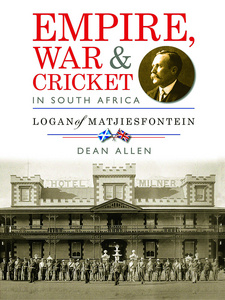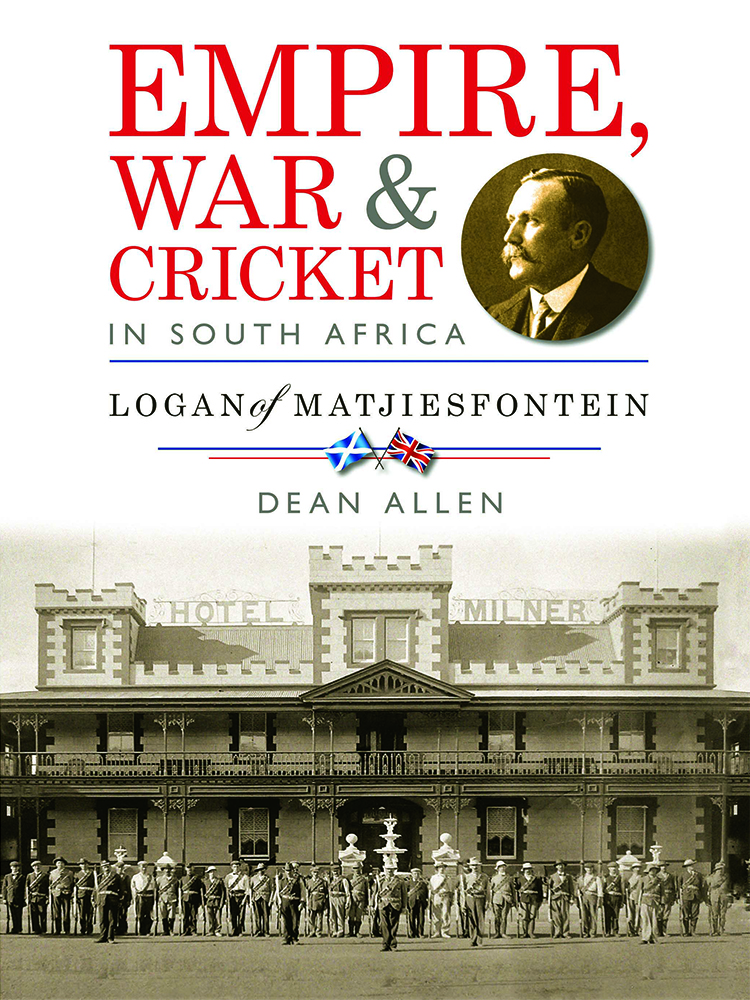Empire, War and Cricket in South Africa, by Dean Allen

Empire, War and Cricket in South Africa, by Dean Allen. Penguin Random House South Africa. Cape Town, South Africa 2015. ISBN 9781770228474 / ISBN 978-1-77022-847-4
Empire, War and Cricket in South Africa is a significant contribution to the burgeoning field of sports history and society. Dean Allen does well to demonstrate the linkages between sporting endeavours and wider societal currents in South African society during the heyday of empire.
Series of publications have in the past decade and a half debunked some key founding myths of cricket in South Africa - for example, long-held notions that cricket was somehow a 'pure' game unsullied by politics, introduced and played on the African veld in a fair-minded way by British gentlemen. Historians have begun to show that the reality was somewhat different. Cricket's development in this country was closely tied to the process of military conquest, exclusionary colonialism, and harsh political and social attitudes that eventually led to apartheid. Big gaps in our knowledge, however, still remain, and it is necessary for researchers to revisit in detail the source material in order to avoid easy political positions and to better understand specific aspects of both the old British colonial narrative and the complex nature of the early game in South Africa. Empire, War and Cricket in South Africa is therefore a welcome new addition to the historiography. Dean Allen's book joins a limited list of unique studies that illustrate the way in which cricket in this country became part of a transcontinental spider-web of commerce, culture and politics from the late nineteenth century onwards. It deepens our understanding of the past by looking closely at the experiences, modus operandi and self-perceptions of an early colonial entrepreneur who (in the course of accumulating great wealth from a modest base) also became a pioneering patron of cricket. James Logan was representative in many ways of a grasping late-nineteenth-century cowboy capitalism that came to reshape and dominate the subcontinent, while holding aloft the flag of 'fair play', 'civilisation' and 'empire'. Together with contemporaries like Cecil John Rhodes, this Scottish-born entrepreneur was in the vanguard of an accelerating expansionism at a time when the British bore few doubts about their historic mission. Coinciding with Rhodes's and Logan's growth in prosperity (and the beginnings of organised cricket and tours), Britain 'acquired' almost five million square miles of new territory and about 88 million new subjects in the thirty years between 1870 and 1900. By the turn of the century, its empire stretched over an area of more than twelve million square miles and included around 460 million people. It occupied nearly one quarter of the world's area and almost one quarter of the world's total population. The British Empire was described by one historian as 'by far the most enormous imperial system that the world had known',1 putting it on roughly the same scale in terms of size and population as today's new pace-setting BRICS alliance between Brazil, Russia, India, China and South Africa. By the time of Queen Victoria's death in 1901, there were approximately 100 million people of 'British stock' living in territories beyond the United Kingdom. Historians have noted that cricket's 'geographical spread matched that of British expansionists who were part of the direct and indirect British Empire'.2 Tests and tours became an important part of a cultural imperialism designed to cement ties between Britain and her dependants and it was not long before South Africa was accepted into imperial cricket's exclusive 'club of empire'. As Jack Williams has observed: Test cricket was played only between England and colonies or former colonies. As cricket was believed to express a distinctively English morality and as apologists for the Empire stressed the moral obligation to extend the benefits of British rule, the nature of cricket as an imperial game meant that cricket and imperialism became mutually supporting ideologies. [...]
This is an excerpt from the history book Empire, War and Cricket in South Africa, by Dean Allen.
Title: Empire, War and Cricket in South Africa
Subtitle: Logan of Matjiesfontein
Author: Dean Allen
Publisher: Penguin Random House South Africa
Cape Town, South Africa 2015
ISBN 9781770228474 / ISBN 978-1-77022-847-4
Hardcover, 17 x 23 cm, 352 pages, numerous photographs
Allen, Dean im Namibiana-Buchangebot
Empire, War and Cricket in South Africa
Empire, War & Cricket in South Africa is a unique social and political history of the workings of the British Empire in South Africa during the late 19th century.

